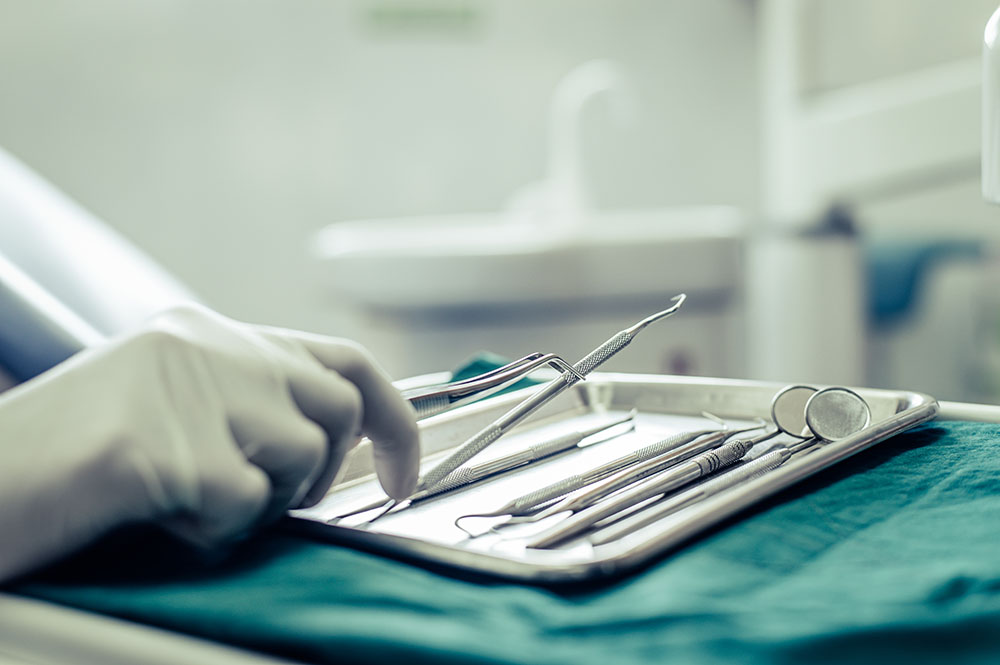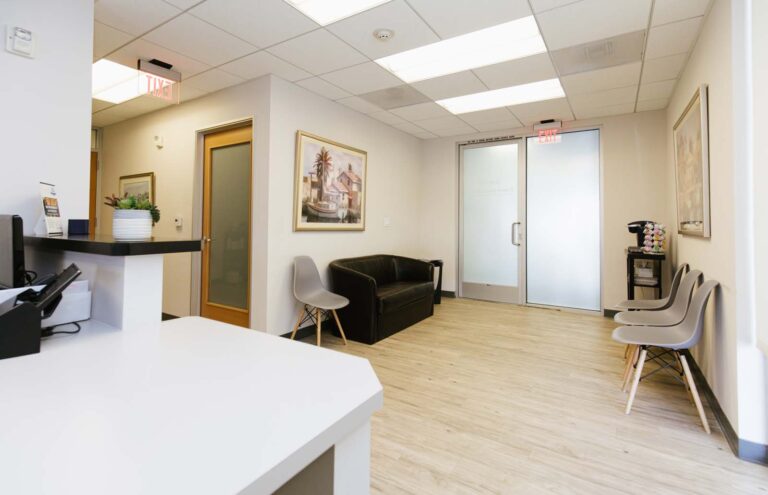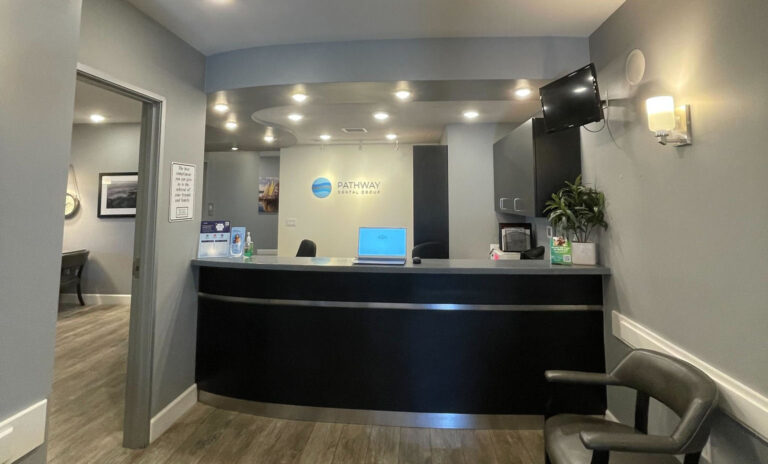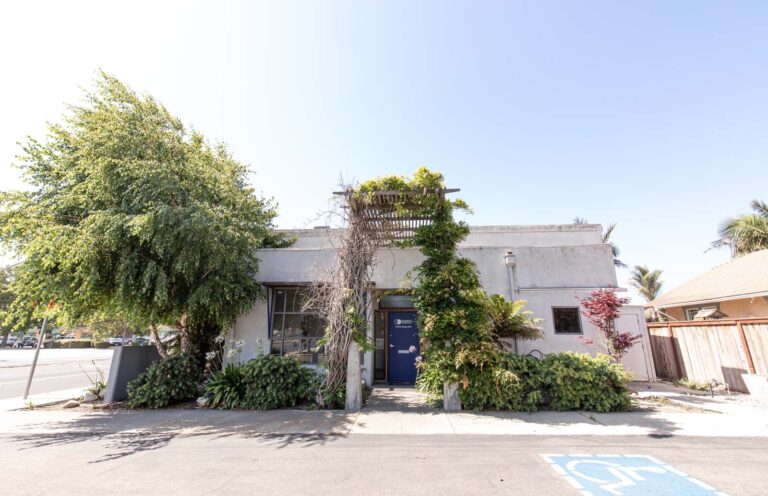Oral Surgery
Oral surgery includes a range of procedures that improve your dental health. Many types of dental surgery offer long-lasting results that improve oral health and the appearance of your smile.
Dental Surgery in Santa Barbara County, CA
Do you need a tooth extraction, dental implant, dentures, wisdom teeth removed or other treatment? Our experienced and compassionate team of oral surgeons at Pathway Dental Group is here for you. With three convenient locations across Santa Barbara County, we offer oral surgery in Lompoc, oral surgery in Santa Barbara and oral surgery in Santa Maria.
As a leading provider of oral surgery in the area, we’ve taken every measure to create a safe and comfortable environment for you. That’s why we offer IV dental sedation and other options to reduce anxiety and make the experience as easy as possible. Our staff also takes the time to explain your treatment plan, answer any questions you may have and help you become more informed about oral surgery.

-
What is oral surgery?
Oral surgery is a specific type of dentistry. It focuses on procedures to treat diseases, injuries and conditions in your teeth, gums, mouth, jaw, neck, and face.
You may sometimes hear this type of treatment called oral and maxillofacial surgery or dental surgery. No matter what you call it, oral surgery helps correct issues and treat conditions with long-lasting results.
-
How long does an oral surgery take?
Most oral surgeries only take a few hours. You may need to stay in the office for a few hours depending on how extensive your procedure is and the type of anesthesia or sedation you use. Regardless of how long you’re with us, you should plan to rest at least for the entire day.
-
How long does it take to recover from an oral surgery?
Most people need one or two weeks to completely heal after oral surgery. Many patients rest for two or three days right after surgery. Pain during recovery depends on your surgery. We prescribe most patients with pain medication to help with pain after surgery.
You can usually expect some bleeding, swelling and discomfort after surgery.
Bleeding
To slow or prevent bleeding, bite with light pressure on the gauze pack that has been placed over the surgical area. Apply pressure in 20–30-minute intervals and repeat until the bleeding is brought under control. If bleeding persists without slowing for several hours, apply a gauze soaked in strong tea and repeat the above steps until the bleeding stops. Exercising and heavy lifting will raise your blood pressure and will dislodge the blood clot and bleeding will resume. Avoid exercising for three to five days following the surgery.
Swelling
Prevent or minimize swelling by applying ice packs at 10-minute intervals to the surgical area. After 72 hours, apply warm compresses to the area to relieve swelling. Swelling is a natural part of the healing process and can be expected for three days to several weeks depending on the nature of the surgery.
Discomfort
Following most surgical procedures, you may experience pain. You will receive medication to help. In most cases, you’ll take a non-narcotic pain regimen, consisting of acetaminophen (Tylenol) and ibuprofen (Advil). These two medications, taken together, are as effective as a narcotic without any of the side effects associated with narcotics. If you are prescribed a narcotic, follow the directions carefully.
-
What are tips to help with recovery after an oral surgery?
These are some general instructions to help with recovery:
- Do not rinse for at least 24 hours after the surgery. When you do rinse, rinse with lips apart.
- Do not exercise or do heavy lifting for 3–5 days after the surgery.
- Do not smoke.
- Do not use mouthwash that contains alcohol, eat overly acidic foods or crunchy foods, or use mints.
- Do not do anything that creates suction in your mouth, such as drinking through a straw, playing a wind instrument or snorkeling.
- Do not touch, lick or look at the surgical area. Do not pull at cheeks.
- Do not have any facial massages for at least 3 weeks.
- Do not wear any bite appliance or tray unless instructed to do so.
- Do not use electric toothbrush or floss surgical area after grafting procedures. Only brush with a prescribed toothbrush after instructed by office at your post op appointment.
Call your doctor if:
- Profuse bleeding continues after 3–4 hours of applied pressure.
- You are unable to maintain a nutritious diet after 48 hours.
- Pain and/or swelling increase after the third day.
- You have an allergic reaction to medications. Examples include a skin rash, hives, elevated temperature, increased or erratic heart rate, nausea or vomiting, dizziness or fainting, or blurred vision.
-
What foods should I eat after oral surgery?
]Try to eat cool, soft foods after your procedure. These foods are easier to eat and less likely to impact blood clots. Examples of appropriate foods after surgery include:
- Applesauce
- Jell-O
- Mashed Potatoes
- Oatmeal
- Rice
- Soups
- Yogurt
Remember to stay hydrated after your procedure, too. Drink lots of water, but avoid drinking through a straw. You should also avoid carbonation, alcohol and hot beverages for at least a week.
More Questions?
If you have more questions about oral surgery or are having issues following your procedure, please contact our office and we will address your concerns right away.








